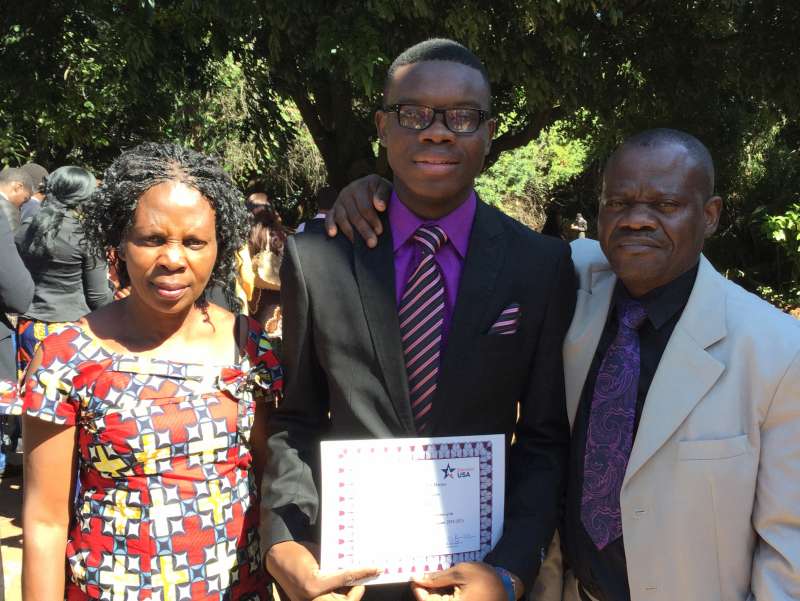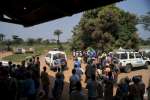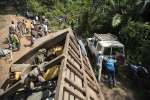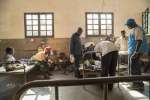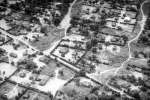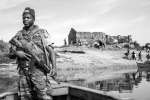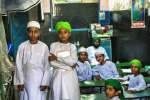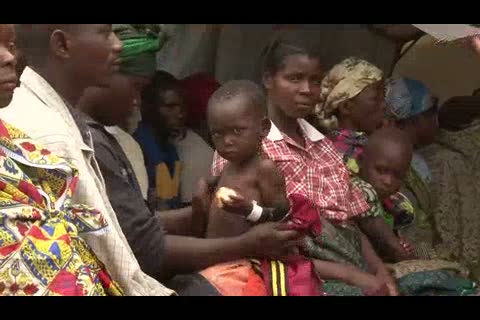- Text size
 |
|  |
|  |
| 
- عربي
Refugee student's hard work pays off with scholarship to study in USA
News Stories, 7 July 2015
TONGOGARA, Zimbabwe, July 7 (UNHCR) – After fleeing his home in the Democratic Republic of the Congo and seeking safety in Zimbabwe, the last thing 20-year-old Joel Tshite ever expected was the chance to study in America.
Now, thanks to the US Student Achievers Program (USAP), he is one of 27 students in the entire southern African country whose future shines brighter than ever after an amazing journey out of darkness.
It was 2001 when a six-year-old Joel saw a group of thugs hack his three older brothers to death. They had been searching for his missing father. "My world changed forever that night," he recalled. "We fled DRC a few days later, I knew it would never be the same again."
Joel, his remaining five siblings and distraught mother left the DRC's Katanga Province and settled in Zimbabwe's Tongogara refugee camp. For a little over a year, he stayed at home, where questions about his still missing father went unanswered. The surviving members of the family feared the worst.
Then, aged eight, he finally went to school. By the end of grade three, the young Congolese refugee was top of the class. "I was not one of those clever children who didn't have to apply themselves," Joel said, 12 years later. "It was sheer hard work and determination that got me where I am today."
Then, one day in 2004, his father returned -- a surprise which provided all the encouragement he needed to excel at school.
"My brother and I returned home from school one day and when we opened the door, there my father was," Joel exclaimed. "I couldn't believe it."
Back in 2004, his father had fled the DRC for Zimbabwe, with no idea that his family had also headed south. "It was during a church service that a member of the congregation remarked about how similar he looked to a group of children he knew," said Joel. "When my father was told the names of the children he couldn't believe he had found us."
With his parents' support, Joel continued to do well in school and, during holidays, actively participated in camp activities as a Youth Mobiliser, engaging his peers on HIV/AIDS, the dangers of early and forced marriages, environmental protection and other issues.
Then, he won a UNHCR scholarship to complete his A-level at a high school in nearby Harare. It was there that he learned about the USAP, an initiative of the US Embassy in Zimbabwe that gives academic opportunities to talented students from poor backgrounds.
"This was my chance," Joel said. "My father would not be able to afford my university studies on the earnings from his jobs so now it was up to me to step up and do my best. I filled out the application form and one day, when I was back home in Tongogara camp, I received the best news ever."
Joel was one of 27 students in Zimbabwe to receive a full academic scholarship that enables him to study electrical engineering at the University of Southern Indiana.
"Although I didn't know what the outcome would have been after I submitted my application, something inside of me was at peace," he says. "When I received the news that I had won the scholarship, I understood what that feeling of peace in my heart was."
Rebecca Zeigler Mano, the founder of the USAP scholarship programme, says: "I knew there were incredible kids in Zimbabwe who deserved the opportunity – brilliant kids, who needed to be encouraged to get the opportunity to study in America. I strongly believe that if you marry talent with opportunity, great things can happen."
"There is so much potential amongst refugee youth that live in camps and the opportunities to build on that potential are so few, it is really an amazing opportunity for Joel's future," added Millicent Mutuli, UNHCR's Representative in Zimbabwe.
Joel is now preparing to leave Zimbabwe for the University of Southern Indiana, aware that a new, more promising chapter of his life is about to begin.
"Indeed, it is new beginnings for me again, but this time without the pain, the dread and unanswered questions I left the DRC with all those years ago," he stressed. "This time, it will be a journey filled with excitement and expectation at what the future holds for me and my family."
By Pumla Rulashe in TONGOGARA, Zimbabwe
